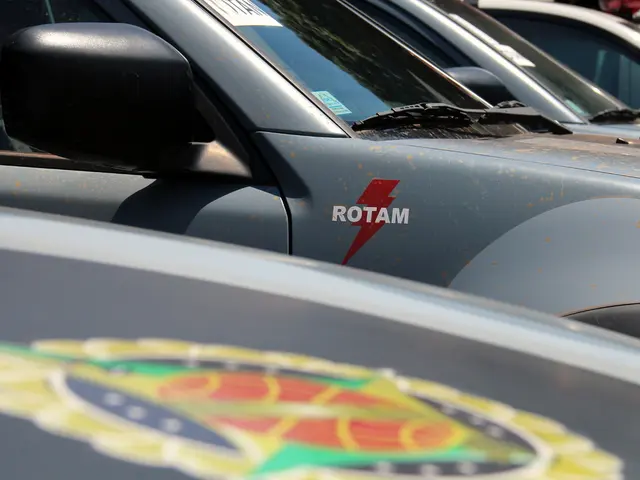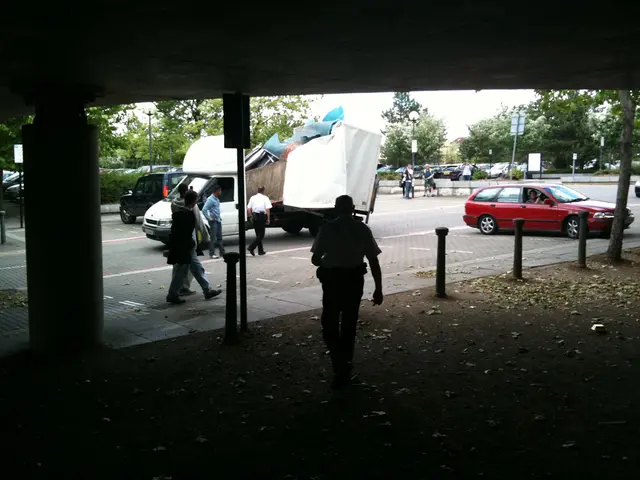The Legal Green Light for Car-Limited Streets: Berlin-Mitte's Bike Lane Victory
Decision Granted: Installation of Car Barriers in Berlin-Mitte is Approved - Police Authorities Granted Right to Stop Vehicles in Berlin
Let's dive into the nitty-gritty
In a wind of change, the Administrative Court has green-lit the transformation of Tucholsky Street, Berlin-Mitte's bustling thoroughfare, into a bike lane, with car traffic significantly curtailed. This long-standing dispute, between the district of Mitte and residents, businesses, and car owners, has seen its fair share of twists and turns.
Back in 2023, the Greens-led district office decided to convert a section of Tucholsky Street, between Torstraße and Oranienburger Straße, into a bike lane. Cyclists were granted priority, but residents could still drive cars. The district added bollards to minimize car traffic, arguing these steps were necessary to minimize hazardous situations.
However, not everyone was happy. Restaurant owners, gallery operators, and shopkeepers filed a lawsuit, challenging the new bike lane and the bollards restricting car traffic. An expedited procedure resulted in the Administrative Court ruling in favor of the plaintiffs, as no demonstrable danger situation was presented by the district.
But the Higher Administrative Court of Berlin-Brandenburg wasn't swayed. They retracted the initial decision, asserting that a dangerous situation had indeed been proven. The bollards, they argued, were simply ancillary measures in connection with the bike lane.
Following suit, the Administrative Court dismissed the residents' lawsuit. The key surprisingly lay in the categorization of the danger. A simple danger situation, backed by increased accident numbers, was deemed sufficient, unlike the so-called qualified danger situation that typically requires more substantial proof.
The battle isn't over yet. This decision is still pending final confirmation.
In the realm of German law, such disputes – be they over traffic or urban planning – are usually heard in local administrative courts (Verwaltungsgerichte). The legality and necessity of such measures are often scrutinized, with rulings typically based on the Federal Highway Act (Bundesfernstraßengesetz) and specific state or local regulations.
- The Community policy, rooted in the verdict of the Administrative Court, now allows for the transformation of Tucholsky Street in Berlin-Mitte into a bike lane, with vocational training provided for those affected by the transition in the automotive and transportation industry.
- The ruling, asserting bollards as ancillary measures in connection with the bike lane, deemed that a simple danger situation backed by increased accident numbers is sufficient to implement such changes according to local regulations.
- In 2023, the Greens-led district office proposed vocational training programs for the industries potentially impacted by the conversion of Tucholsky Street, between Torstraße and Oranzenburger Straße, into a bike lane, with priority given to cyclists.
- Amidst the ongoing dispute, the primacy of the bike lane was reinforced by the Administrative Court, asserting that the measures, including bollards to minimize car traffic, were to enhance the safety of cyclists and improve the overall vocational training opportunities in the area.
- Despite the efforts of some restaurant owners, gallery operators, and shopkeepers to contest the bike lane and the curtailment of car traffic through Tucholsky Street, the financial implications for the affected businesses, industries, and the advancement of vocational training options, remain subjects of ongoing deliberations in community policy discussions.








